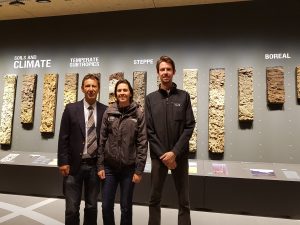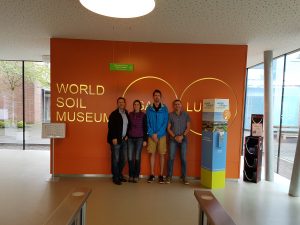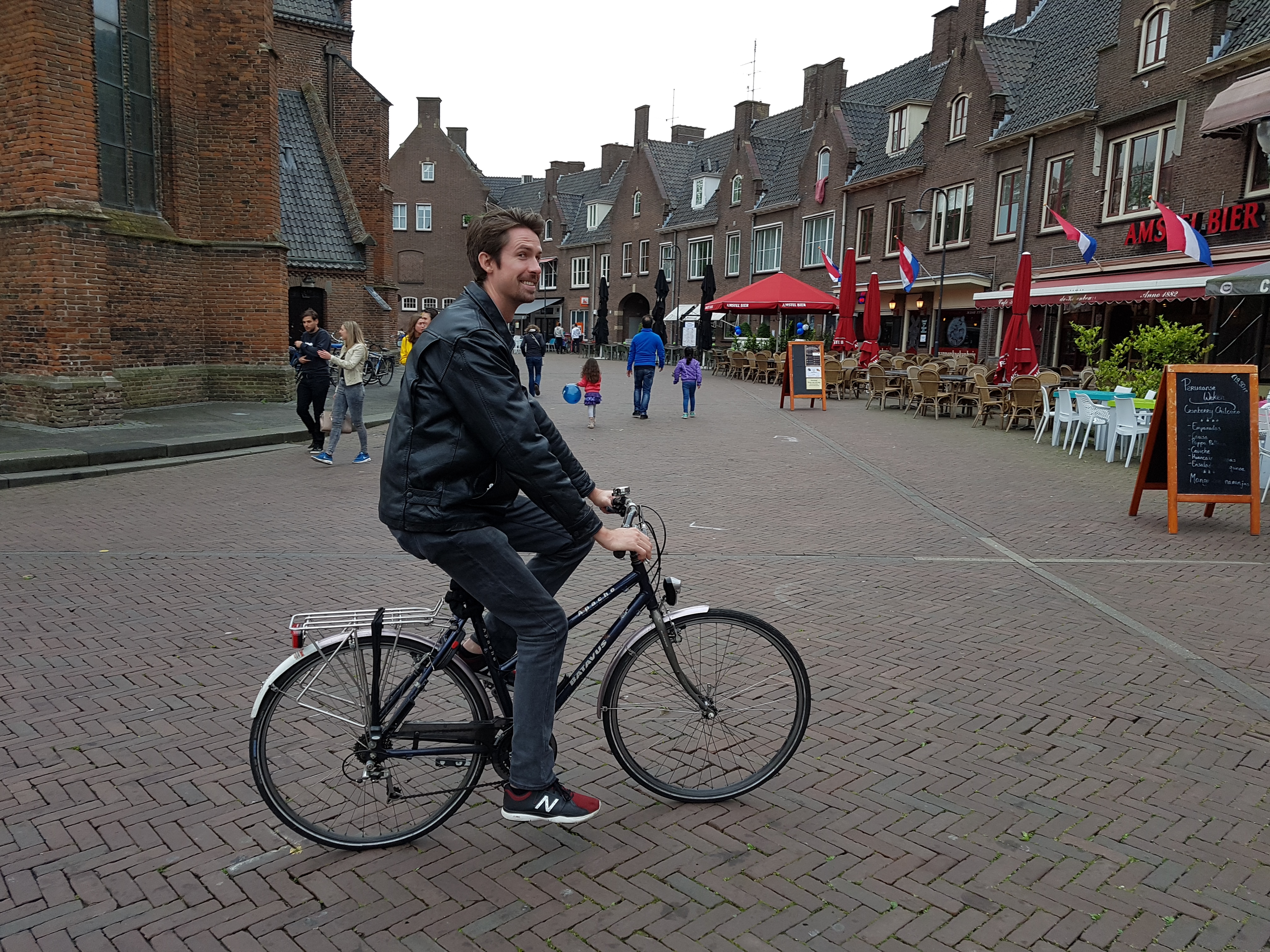Pre-departure:
As for the application process, I was quite impressed. I went to the international office asked about how the process worked and was awarded the bursary the very same week. This might have been because I applied so late, but never the less I was impressed. The application process was straight forward with no unnecessary baggage attached to it. The only critique I would say is that the application form was difficult to find online. I had to ask for the link to the application form.
Fortunately for me, I did not need a visa to go to the Netherlands. Therefore, I cannot comment on the visa application process. This was a very nice luxury. As for preparation, a large amount of material was needed to go over before attending the course. This was because the software and general theory of the course was quite advanced. This involved about a month of short tutorial work as well as readings. This was about the only pre-departure preparation for the course I had to do.
As for the travel part, I always have a problem flying because I am so tall. Unfortunately, there is not much I can do about that and I usually just have to get over that part. When arriving in Amsterdam, I booked a hostel for one night. To my dismay, I booked it for the wrong day so I had to pay for two nights. I would say a big tip is to double-check all the dates especially when paying with Euros. Another tip would be to check what kind of transport there is from the airport and where exactly you are staying on google maps. Also, write this information down, don’t just keep it on your cell phone as your phone may die or not work. In Europe, it is usually easy to figure this stuff out because of the transport systems and freely available internet. After the first night, I do not see much need to plan as you can get better information about where to stay/go from the people there.
I think another important preparation step I do is going to my bank to see the best way to get money in the country I am going to. I usually withdraw money from ATMs and just check with my bank that it will work. However, this can get expensive with ATM fees so I usually withdraw a lot of money at once. This is also a problem if that money gets stolen. If I am worried about pick pocketing I will usually split the money up and place it into different bags/compartments. Additionally, I always have some extra cash or a credit card available if the ATM does not work or my money gets stolen.
In conclusion, my planning was minimal besides the mental preparation expecting the long flight. I always plan on how I will get money, my first night, and how to get to where I will sleep. Other than that, I think it is better to figure out everything once in the country.
Experience at the Host University:
The short course I attended was presented by the International Soil Reference and Information Centre (ISRIC). The course was the called the Global Soil Information Facilities (GSIF) which focuses on modelling soil spatial variability with statistics and computers. The program also focused on R software for statistical modelling and data analysis. The program consisted of 6 – 8 hours of lectures and tutorials a day, for one week. One day we were in class from 8 am until 6 pm. This was quite intense and a little bit unexpected. A problem I saw with having such an intense course was that people lost their attention. I think the course had too much detail for just a one week course.

There was one large dinner at the start of the course for everyone to meet. This was a good experience as we got to meet some top soil scientists in the field. Additionally, lunch was provided everyday which gave an opportunity to get to know everyone who attended the course. After each day in class, everyone was usually exhausted so we would just eat dinner and pass out.
A big difference I noticed during this course was the difference in goals that the ISRIC researchers had compared to the researchers at Stellenbosch. The researchers at ISRIC focus on mapping soil of the whole world, while at Stellenbosch, we focus on mapping soils on a local level. I prefer the latter approach as it is much more practical. There were four soil scientists from South Africa that attended the course and we all agreed that this research seemed out of touch with the average person. This was a little bit of a turn off for me as I did not completely agree with the goals of their research.

Another big difference was the facilities they had at Wageningen University. All their buildings seemed high-tech and new. For example, the building we were based in was in a green house where the windows would open automatically to control the temperature and humidity. They have a lot more resources than we do. This was evident in the amount of money spent on things other than research. For example, ISRIC has a soil library of 1000s of soils from around the world. What makes this unique, is they actually glue soil to a board and fly it back to the Netherlands to be put on display. We were told each soil costs over a million dollars to dig up and fly to the Netherlands. Although interesting, this amount of money seems a little ridiculous to me to glue soil to a wall.
Overall the course and experience were both very valuable. Even though I did not really agree with everything they do at ISRIC, I believe it is always valuable to learn from people with a different perspective. I got to meet and learn from the top soil scientists and meet other academics in my field. For the connections alone, this trip was very valuable. Another obvious value of the trip was the opportunity to travel. Even though we were in class all day, there was still opportunity to get out and explore. I got to meet many people from all over the world with the same interests I have. I thought that was pretty cool.
Returning to Stellenbosch:
This course was only a week-long so the return to Stellenbosch was not a problem. Other than searching for my house keys when the plane landed, no preparation was involved. In hind sight, I should have prepared for the jet lag and not sleeping on the plane. That was honestly the most difficult part of traveling abroad for me. That being said, the trip did greatly affect my plans of traveling abroad and how my perspective has changed about my education in South Africa.
Initially, I did want to further my education in Europe. I thought there would be more opportunities there and it would look good on my CV. However, I learned that the quality of education is determined by what you make it. We all learn from similar text books and just because a lecturer is from Europe, does not give them more knowledge or make them a better lecturer. All it means is they probably have more resources. Additionally, the goals of soil science in the Netherlands are completely different from here. They focus on the soils of the world while South Africa focuses on local soils. For example, one project is to create a digital soil map of the worlds soil carbon. Although beneficial for climate change, this gives the average farmer no information at all. I would much rather focus on soils at a local level as this can benefit the average person.
Although the goals of soil science in the Netherlands are valuable to humanity as a whole, these goals have made me second guess continuing my research in Europe. I don’t want my own research to be out of touch with what people actually need. I would like to relate my research to the average person. This is something I think the soil science department at Stellenbosch excels at. Stellenbosch University is very good at telling us the importance of what we are leaning and giving us practical as well as theoretical knowledge. In essence, the trip made me appreciate the education I received at Stellenbosch University more.
As for going abroad again, yes, I definitely plan on it. I think going abroad is valuable where ever you go. Next time however, I would like to go to another African country and learn from researchers there. I think it would be valuable to get a different perspective on soil science research or just research in general. Basically, I want to explore what this continent has to offer academically and culturally. For me, I now want to continue my education within Africa and hopefully collaborate with partners in Europe.
Even though my abroad experience was only one week. I learned a lot about what and how I want to research. I think this was the most valuable thing I learned on my trip. The trip also taught me how much I value the education I have received at Stellenbosch University. This is true for my undergraduate degree as well as my masters. Hopefully, I will be able to take classes or research abroad for longer than a week next time.

